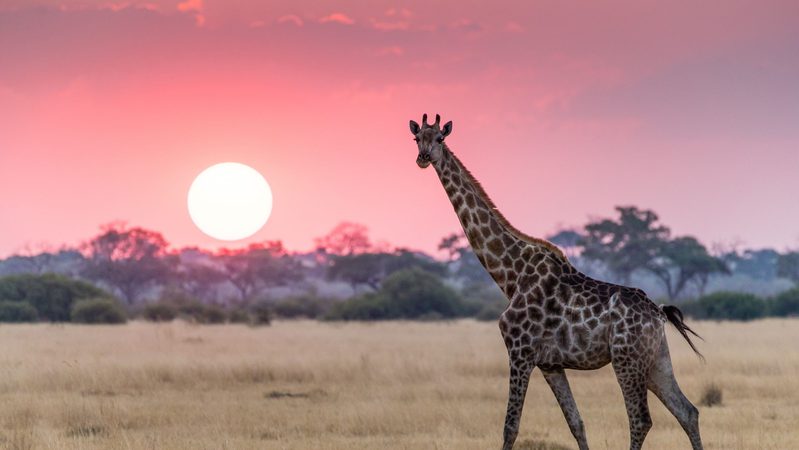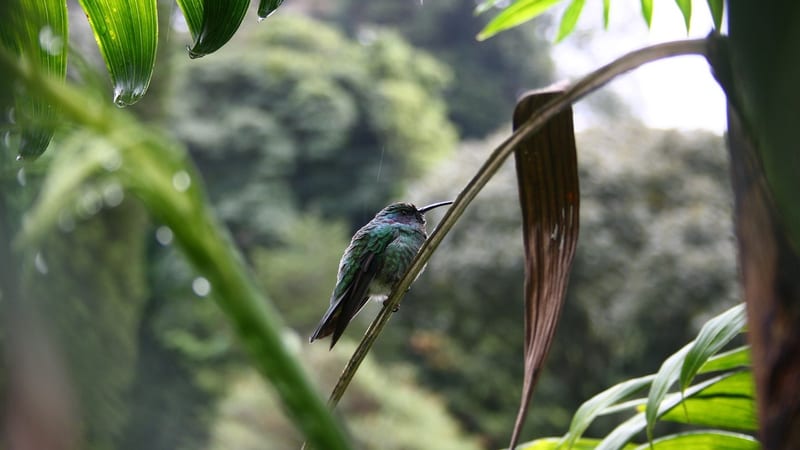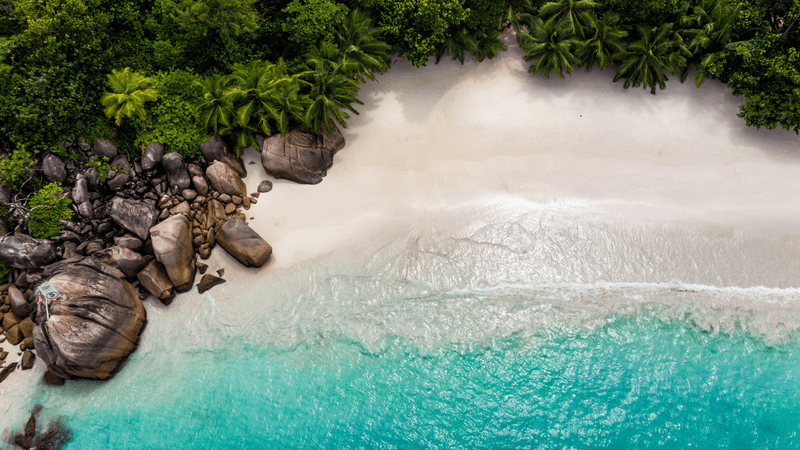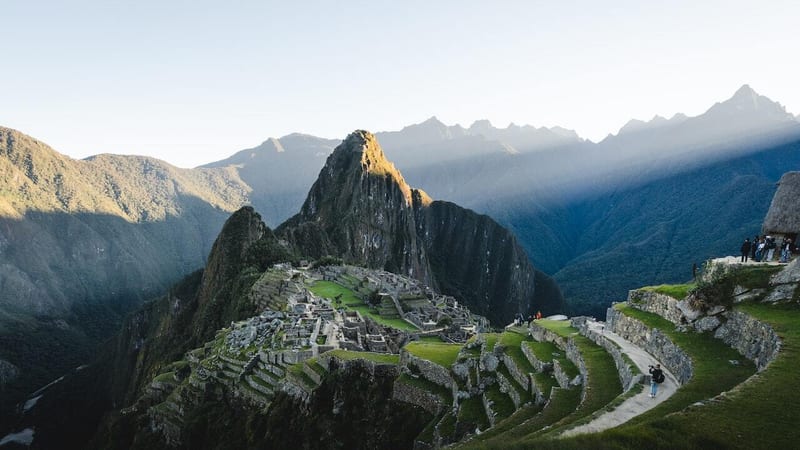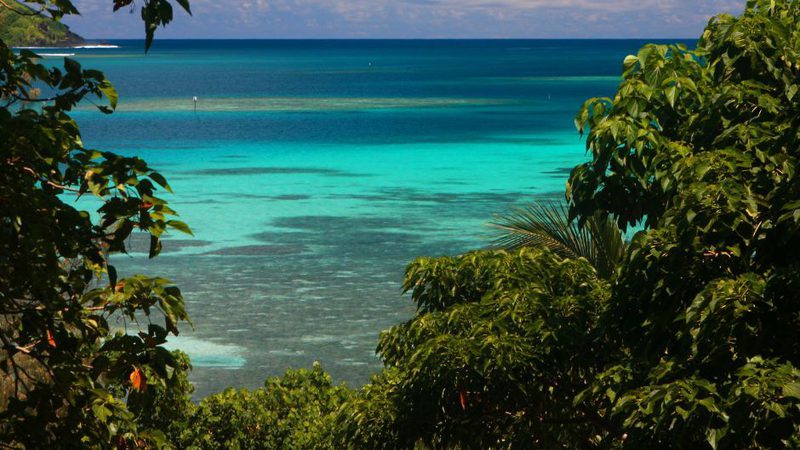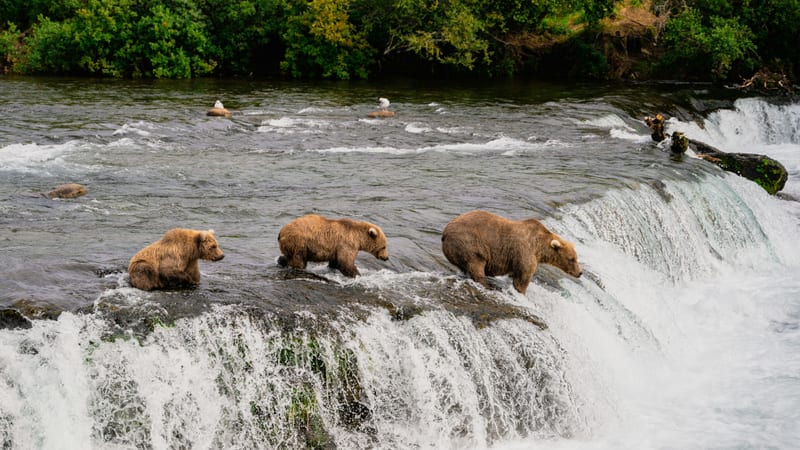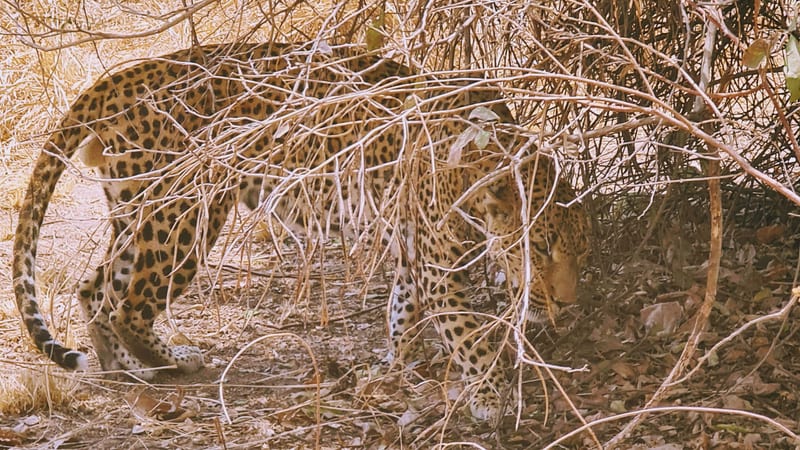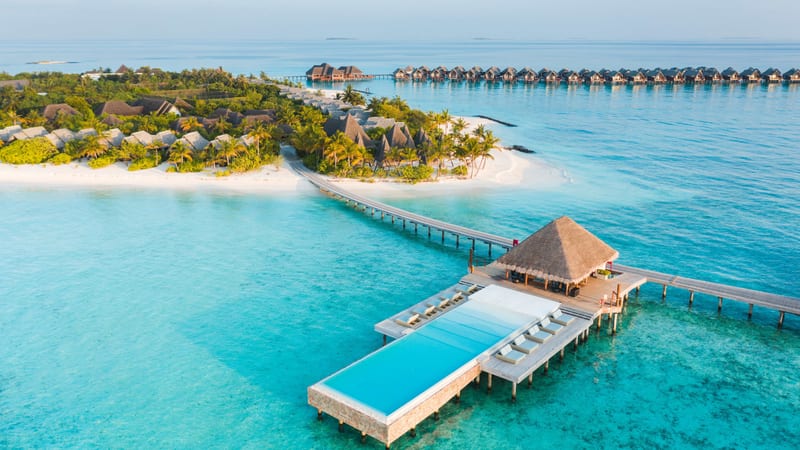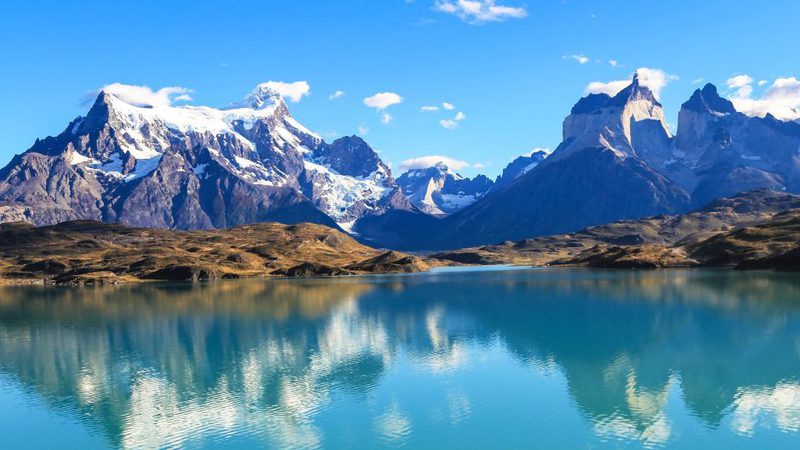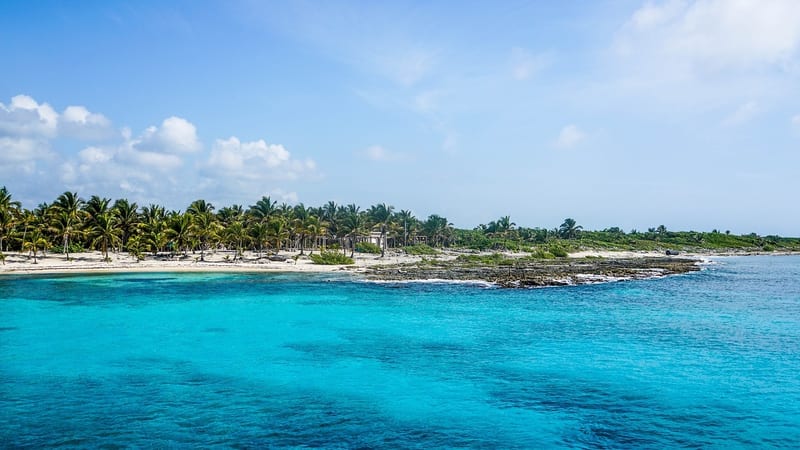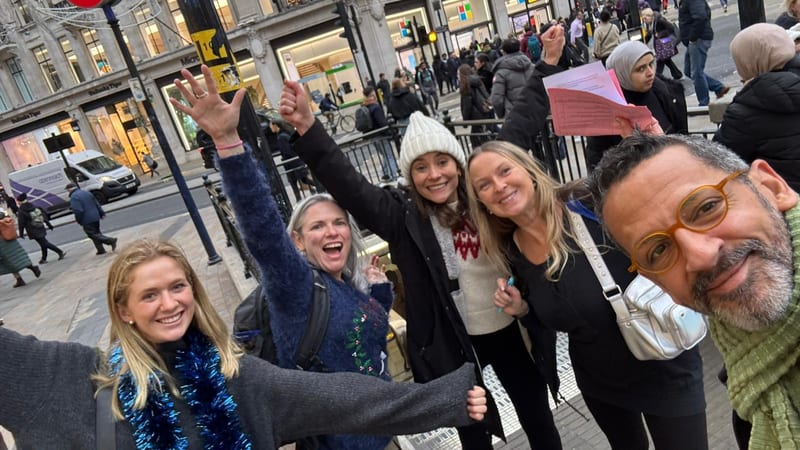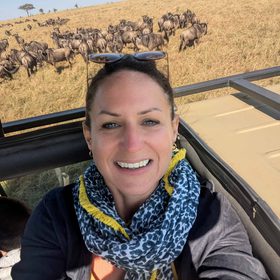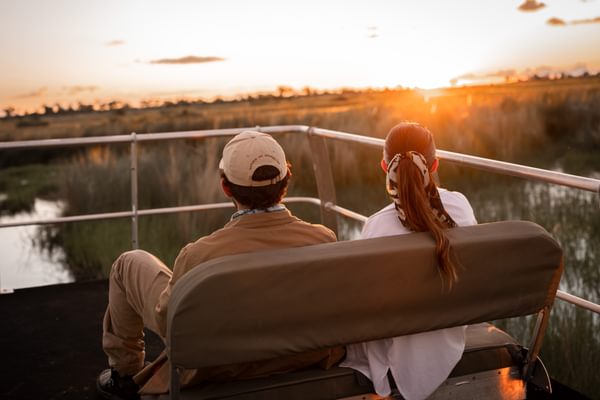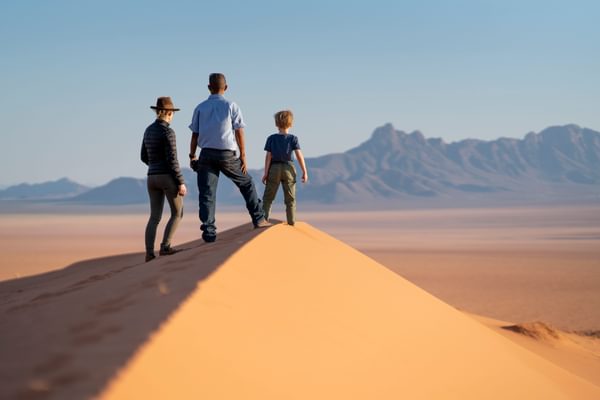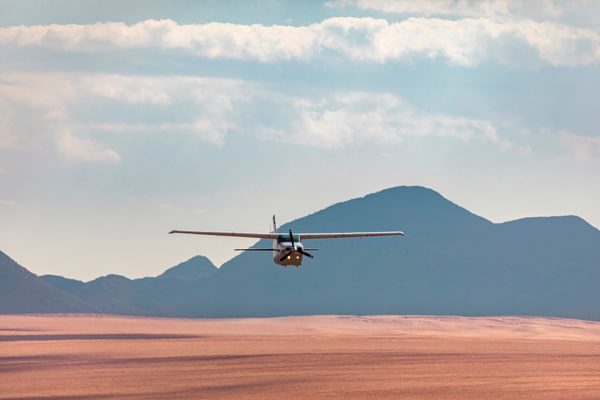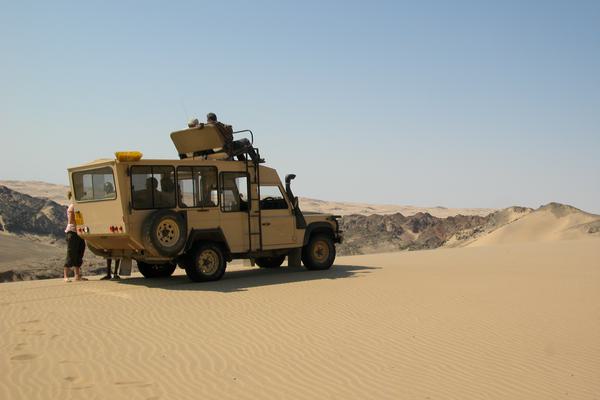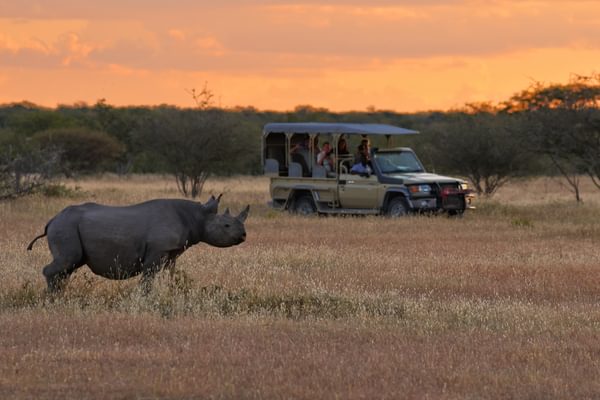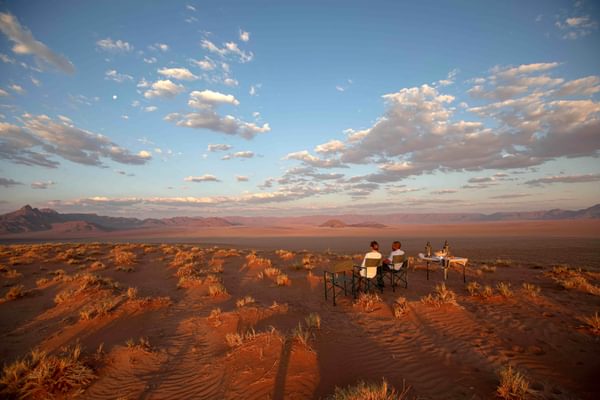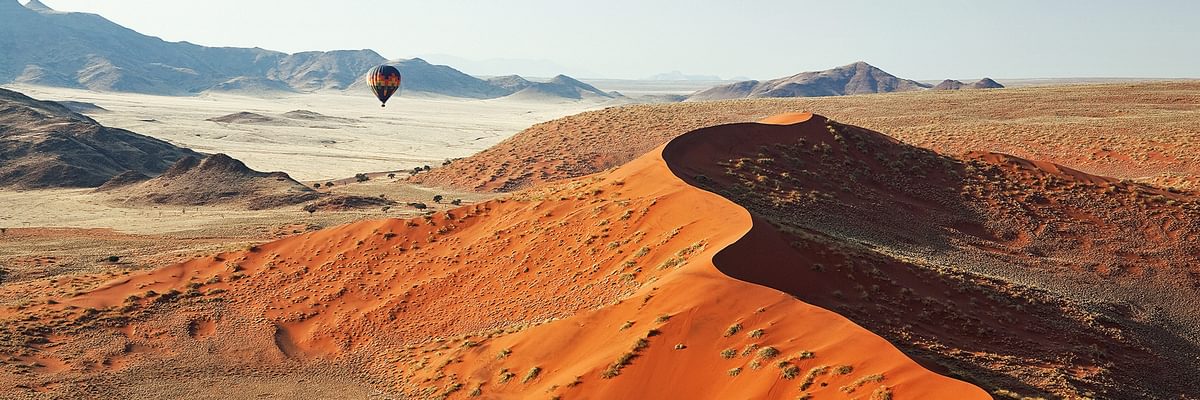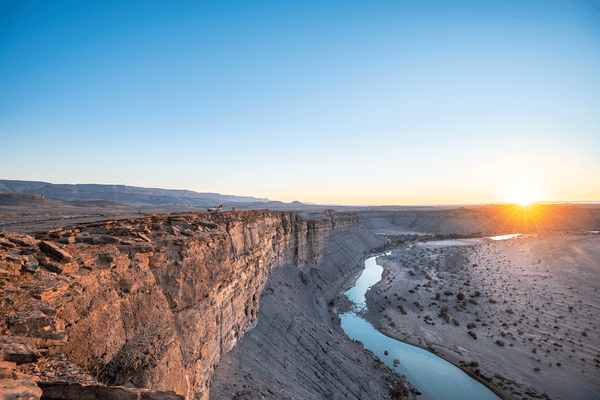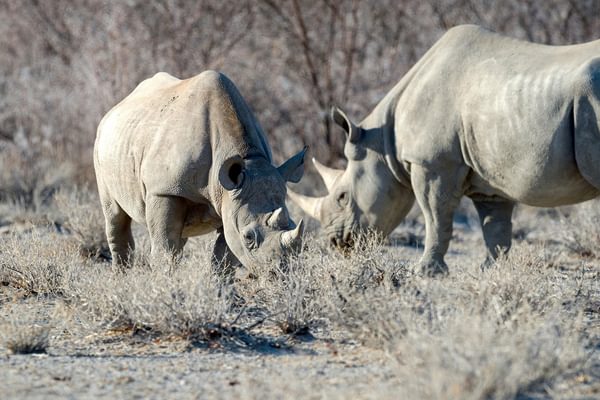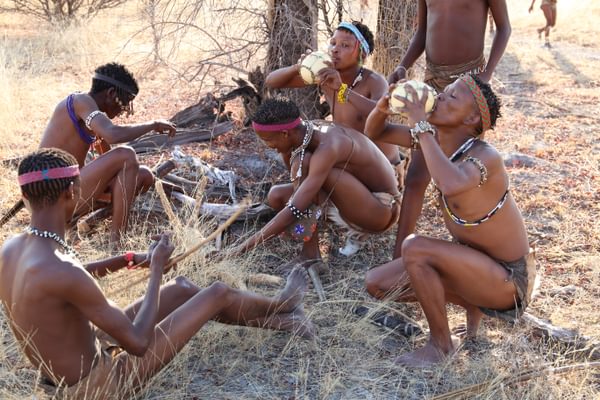With a mix of luxury, adventure and solitude, Namibia offers a safari experience
Namibia holidays showcase a land of striking contrasts where vast desert meets endless sky, and ancient landscapes hold a quiet kind of drama. Namibia tours invite exploration, whether you’re seeking iconic wildlife, cinematic scenery, or the simple thrill of the open road.
Namibia holidays stand out as one of Africa’s most distinctive and rewarding travel destinations. Geographically, it is defined by vast arid landscapes, including the world’s oldest desert the Namib and some of the highest sand dunes on Earth at Sossusvlei. In the north, the Etosha salt pan supports one of the continent’s most concentrated and accessible wildlife-viewing areas for Namibia safari tours, with seasonal gatherings of elephant, rhino, lion and plains game around its network of natural and artificial waterholes.
Namibia’s wildlife offering is not limited to Etosha. The country is a pioneer in community-led conservation, with large private reserves and conservancies that protect desert-adapted species in some of its most remote regions. Damaraland and the Kunene region are home to desert elephants, black rhino, giraffe and mountain zebra, all uniquely adapted to survive in harsh, low-water environments. On the Skeleton Coast, you’ll find Cape fur seal colonies, brown hyenas, and occasional sightings of desert lions - one of the world’s most elusive big cats. Birdlife is excellent across the country, particularly in the Caprivi Strip, a lush, riverine region in the northeast that also supports hippo, crocodile, buffalo and occasional sightings of leopard and wild dog.
The country’s low population density and well-maintained road network make it particularly well-suited to self-drive itineraries - one of the best ways to appreciate Namibia’s scale and solitude. Conservation-led tourism plays a major role in the country’s travel offering, with large private reserves, community partnerships, and strict environmental policies underpinning much of the accommodation and activity infrastructure.
Namibia is also regarded as one of Africa’s safest and most traveller-friendly countries. English is the official language, tourism standards are high, and the variety of experiences available from desert wildlife tracking in Damaraland to cultural encounters with Himba communities makes it ideal for couples, families and solo travellers alike.
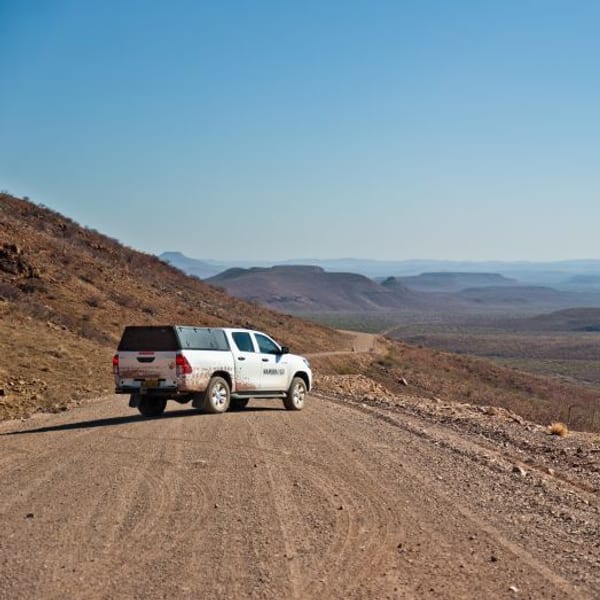
Classic Namibia Self-Drive
- Windhoek
- Okonjima
- Etosha
- Damaraland
- Swakopmund
- Sossusvlei
A self-drive journey through desert, dunes and wild-life rich wilderness.
Namibia Holidays, Trips & Tours
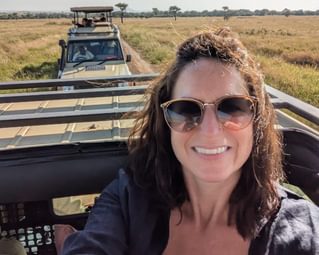
Our Namibia specialist, Ruth, says:
“I’ve been lucky enough to travel all over Namibia, and it’s a country that never fails to surprise me. The landscapes are like nowhere else - vast, cinematic and constantly changing - and the sense of space is incredible. It’s also one of the easiest and safest countries in Africa to explore independently, which makes it perfect for a self-drive or a tailor-made adventure. Whether you’re watching rhinos at a waterhole, climbing a dune at sunrise or sleeping under a sky full of stars, Namibia just gets under your skin in the best possible way.”
When to go to Namibia
Find out the best time to visit Namibia with our month by month guide.
- Best
- Good
- Mixed
- Jan
- Feb
- Mar
- Apr
- May
- Jun
- Jul
- Aug
- Sep
- Oct
- Nov
- Dec
January
Bring your umbrella, it's rainy season. January is mid-summer in Namibia with the possibility of torrential downpours mid afternoon, but with temperatures of 30-35 degrees it tends to be hot and humid.
February
Similar to January, it is hot and humid with the chance of a downpour in the afternoon.
March
In March, rainfall starts to decrease and temperatures lower with nights becoming increasingly cool. Although daytime temperatures remain hot reaching up to 30 degrees.
April
April is predominantly dry and hot, although there can be a couple of sporadic rainy days across the month.
May
Winter is coming. May has little or no rainfall and the humidity is low, in northern regions around Etosha you'll find fresher, greener landscapes with wildlife gathering around depleting watering holes.
- If you're looking to tackle the Fish River Canyon Hike this is the best time to visit Namibia.
June
In June the nights are cold and temperatures can drop below 10 degrees, whilst in the Namib desert it can reach below freezing. There is no chance of rain as the dry season is in full flow.
July
Visitors in July will experience one of Namibia's coldest months, be sure to pack warm clothing as game drives can be chilly.
August
Like July, visitors in August will experience one of Namibia's coldest months, be sure to pack warm clothing as game drives can be chilly and night time temperatures can drop below freezing both at the coast and inland.
September
Considered the best month to travel to Namibia, September is temperate with clear dry skies and low humidity levels.
October
In October game viewing is at its best, the vegetation is fading with temperatures rising up to 29 degrees.
November
Heat continues to rise, with humidity levels remaining low, however there is a chance of rain in the afternoons.
December
December brings the first rains of the season, bringing everything to life as animals start to disperse as more water becomes available.
Where to go in Namibia
Top places to go in Namibia
Best places to stay in Namibia
Speak to a Namibia expert today
and start planning your tailor-made holiday

Alistair
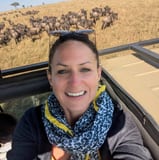
Ruth
FAQs About Your Namibia Holiday
Planning a holiday to Namibia? Our experts share advice on everything from what to pack, when to go, to tips for families, covering the questions we get asked the most.
When is the best time to visit Namibia?
Namibia is a year-round destination, but the dry season from May to October is ideal for wildlife viewing and clear skies. The green season (November to April) brings lush landscapes and dramatic thunderstorms, especially beautiful in the desert regions. Temperatures are more bearable in the cooler months, especially in the south.
Do I need a visa to travel to Namibia?
UK, EU, US, and many Commonwealth passport holders can enter Namibia visa-free for up to 90 days. Your passport should be valid for at least six months beyond your date of entry and have at least two blank pages. Entry requirements can change, so it’s best to check before travelling.
Is Namibia suitable for a self-drive holiday?
Yes, Namibia is one of Africa’s safest and easiest countries for a self-drive. Roads are well-maintained, even in remote areas, and driving is on the left. A 4x4 is recommended for more adventurous routes, but many key areas are accessible with a standard vehicle. Good signage and wide-open roads make navigation straightforward.
What currency is used in Namibia?
Namibia uses the Namibian Dollar (NAD), which is pegged 1:1 with the South African Rand (ZAR). Both currencies are accepted throughout the country. Credit cards are widely used in lodges and shops, but it’s worth carrying some cash for fuel stations, markets, or more remote areas.
Is Namibia a safe destination for travellers?
Namibia is considered one of the safest countries in Africa. It has a low population density, friendly locals, and low levels of crime outside of major cities. As with any destination, take usual precautions in towns and don’t leave valuables unattended. Road safety is more of a concern than personal safety.
How long should I spend in Namibia?
Two weeks is ideal to take in the key highlights, including Etosha National Park, Damaraland, Sossusvlei, and the Skeleton Coast. For a more in-depth journey with time to relax, three weeks allows for a fuller loop including the Kalahari or Caprivi Strip. Namibia’s distances are vast, so don’t try to rush it.
Can I combine Namibia with other countries?
Yes, Namibia pairs well with Botswana, Victoria Falls, or South Africa. Flights link Windhoek to Johannesburg, Cape Town, Maun, and Victoria Falls, and self-drive cross-border trips into Botswana are possible with proper planning.
What kind of food can I expect in Namibia?
Namibian cuisine blends African, German, and South African influences. Expect good-quality meat, especially game, fresh bread, stews, and barbecues. In lodges, meals are generally hearty and international. Vegetarians are well catered for in most properties, but it’s a good idea to let them know dietary requirements in advance.

